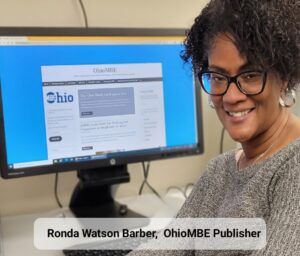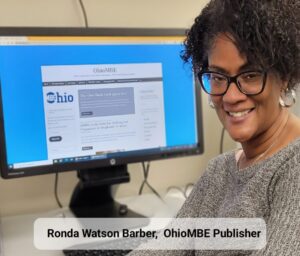
By Ronda Watson Barber
OhioMBE Publisher
Oh, the conversations I find myself engaged in never cease to be thought-provoking. Just yesterday, I found myself in a discussion with a white contractor—an ally and supporter of supplier diversity—regarding the recent LEDE purchasing spend within Columbus City Schools. As we delved into the topic, one question continued to resurface: why does the district struggle to meet its economic inclusion purchasing goal of allocating 20 percent of spending to disadvantaged businesses?
It’s a perplexing issue, especially considering that Columbus City Schools is predominantly a Black school district. Yet, Black vendors seem to be receiving a disproportionately smaller share of these opportunities. As a passionate advocate for fairness within our community, I couldn’t help but emphasize the importance of supporting Black-owned businesses, particularly when it’s Black taxpayers who are primarily funding these initiatives.
Even more troubling is the fact that this disparity persists despite the presence of Black leadership within the district. Even when a Black man is at the helm of the Operations Division, Columbus City Schools still falls short in intentionally engaging Black vendors. This raises important questions about the sincerity of leadership rhetoric and the actionable steps being taken to support minority-owned businesses.
During another recent conversation, someone suggested I refocus my strategy of engaging the elected board and instead focus on the Columbus Education Association (CEA). They recommended that I speak to their president about the issue, urging me to rally CEA support for greater inclusion and to report our conversation to the community. The logic was clear: if the teacher union supports the inclusion of more Black businesses with CCS dollars, progress could be achieved swiftly. I was left speechless, but I plan on calling the teacher’s union for a chat soon.
The numbers speak volumes and reveal a stark reality. In the last school term alone, Black vendors received a mere $8.9 million in contracts under the disadvantage business program, while their white counterparts secured a staggering $18.3 million. Despite claims of race neutrality, it’s evident that there’s a glaring lack of inclusivity among those making purchasing decisions.
During our conversation, my friend even raised the concern of kickbacks, a common issue in the construction industry. This possibility is deeply troubling, especially when considering the financial struggles faced by many Black senior citizens who are struggling to pay their new tax bills.
Ultimately, what it boils down to is this: Black taxpayers are funding these initiatives but aren’t receiving a fair return on their investment. It’s imperative that we address this disparity head-on and work towards creating a more equitable system that benefits all members of our community.
Moving forward, Columbus City Schools must recognize its role in perpetuating systemic inequalities and take proactive measures to rectify these disparities. By fostering a culture of inclusivity and actively seeking out partnerships with Black-owned businesses, we can begin to bridge the gap and promote economic empowerment within the Black community. CCS has a moral obligation to reinvest tax dollars into the Black community.
just my thoughts…rwb
Discover more from OhioMBE
Subscribe to get the latest posts sent to your email.
